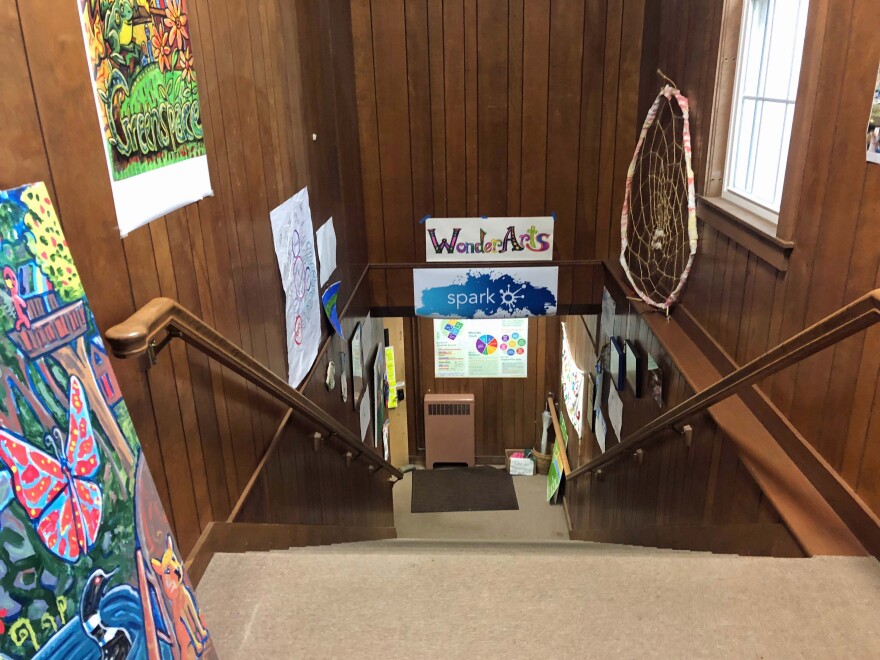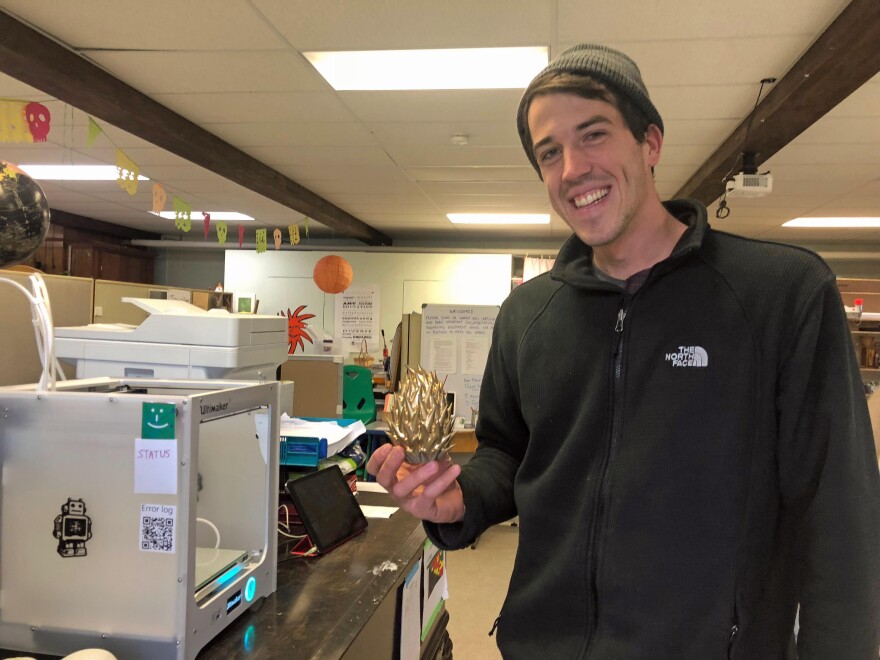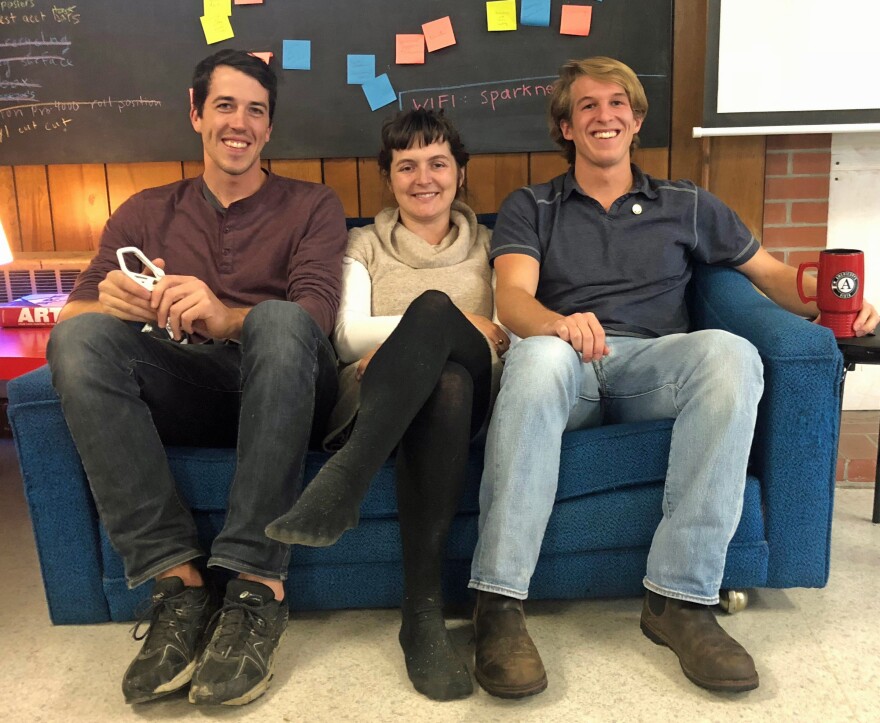If you live in Burlington, Montpelier, Rutland – or any of Vermont’s more urban communities – you’ve probably come across a makerspace or a coworking space. Now the trend is catching on in more rural communities as well, including the small Northeast Kingdom town of Greensboro.On a stretch of road alongside Caspian Lake, between Willey’s Store and the town clerk’s office, is the Greensboro United Church of Christ. If you go in the side door and head down a carpeted staircase, flanked by wood-paneled walls, you’ll come to the church basement.
It’s not a place where you’d expect to find state-of-the-art graphic design computers, 3D printers, a laser cutter or any of the other high-tech tools available in a well-equipped makerspace. But it’s all here.
It’s the home of WonderArts, a community organization serving residents of Hardwick, Craftsbury and Greensboro – and also pretty much anyone else who wants to make the trip.

WonderArts executive director Ceilidh Galloway-Kane said, despite the sparse population, there are plenty of local creative people.
"Most of us have our own studios or we have turned our garage into a woodshop or are doing blacksmithing in the barn – whatever it is," she said. "But there wasn’t the access to that kind of more high-tech equipment."
And Galloway-Kane also made the point that Greensboro's rural location actually heightens the needs for a creative incubator space:
"Living in Greensboro, you have to drive 45 minutes to make a copy in Montpelier or Newport, or there’s very limited high-speed internet, if any. ... You had to use limited library office hours for internet. There wasn’t really a place for anyone to come and utilize equipment."
So WonderArts applied for, and received, a Rural Business Development Grant from the U.S. Department of Agriculture to purchase the type of high-tech equipment local small business owners, craftspeople and students didn’t have access to.

"So it could be, you know, the person who just wants to sit and work at their computer, utilizing high-speed internet with other people around them, not just at home," Galloway-Kane said, "or the person who wants to make a high-tech print, the person who wants to try and use a 3D printer."
WonderArts carved out a spot in the church basement for a coworking and makerspace, and they named it Spark.
"So the idea was, if we have this one space with all this different equipment, with all these different people, then we really can ... incubate ideas and innovation and get people together," Galloway-Kane said.
Spark is still in its beta phase. The fiber-optic internet was installed last week – something Galloway-Kane says was a major feat. Spark coordinator Ezra Ranz has been bringing new equipment online.
"A big part of making the computers available is really the software that’s on them," said Ranz, "and giving them the tools to create everything from websites to 3D models of mechanical designs. We’re kind of doing that interplay between computers and 3D printers or vinyl cutters, laser cutters. It’s really kind of putting it all together so that you can create whatever you want in this space."

Spark is also reaching outside of its space. WonderArts AmeriCorps volunteer Jake Lester is working on connecting Spark makers with students at Hazen Union High School.
"We are looking to expand the student membership options, and also just co-locate some of our programs," said Lester. "Which, to us, means teaching classes at the school after hours that are accessible both to community members and students. And those could be classes in 3D modeling or in Photoshop or in entrepreneurship."
Lester added that, by providing access to high-tech tools and introducing students to active members of the Northeast Kingdom’s creative economy, they hope to inspire young rural Vermonters to think about ways they can make a living for themselves here, after graduation.






